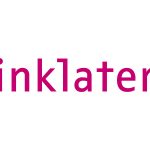The lawsuit could have major implications for the tech giant's handling of the more than 2 million apps in Apple's App Store, where users get much of the software for their smartphones.
While most of those apps are free to download, some impose fees for people to use the software and subscribe to the services. In those cases, Apple charges a commission of 30%, a practice that the lawsuit contends unfairly drives up the price for the apps. Justice Brett Kavanaugh wrote the majority opinion that agreed the antitrust lawsuit can move forward in a lower court.
The court's four liberal justices joined Kavanaugh, one of President Donald Trump's two high court appointees, to reject a plea from Apple to end the lawsuit at this early stage. The decision did not involve the merits of the suit. Apple argues it's merely a pipeline between app developers and consumers, and that iPhone users have no claims against Apple under antitrust law and a 1977 Supreme Court decision.
Tens of thousands of developers create the software and set the price, Apple says. "We're confident we will prevail when the facts are presented and that the App Store is not a monopoly by any metric," Apple said in statement issued in response to Monday's ruling. The lawsuit could take years to wind to its conclusion.








